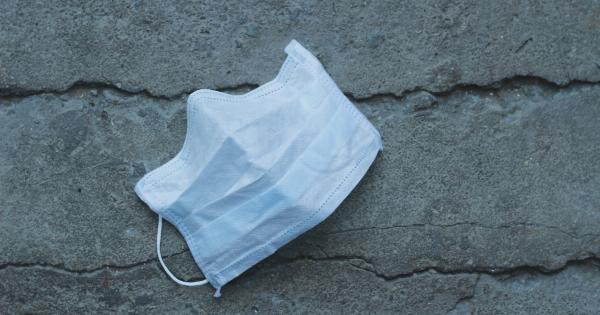Kidney stones are small, hard deposits that form in the kidneys and can cause excruciating pain when passing through the urinary tract.
These stones can range in size and composition, with some being as small as a grain of sand and others as large as a golf ball.
While the causes of kidney stones can vary, they are primarily formed due to an imbalance of minerals and salts in the urine.
Factors such as dehydration, inadequate fluid intake, certain medical conditions, and a diet high in sodium, oxalate, and animal protein can increase the risk of kidney stone formation.
1. Stay Hydrated
Adequate hydration is crucial for preventing kidney stones. When you drink enough water, it helps dilute the urine and prevents the minerals and salts from accumulating and forming stones.
Make sure to consume at least 8 cups (64 ounces) of water per day. If you live in a hot climate, engage in strenuous physical activity, or sweat excessively, you may need even more fluids to stay properly hydrated.
2. Follow a Healthy Diet
Your diet plays a significant role in kidney stone prevention. Here are some dietary tips to reduce the risk of kidney stone formation:.
A. Limit Sodium: Excessive sodium intake can lead to calcium buildup in the urine, contributing to kidney stone formation. Aim to limit your daily sodium intake to less than 2,300 milligrams (mg).
B. Reduce Oxalate-rich Foods: Oxalate is a compound found in certain foods that can combine with calcium in the urine, forming kidney stones.
Limit your consumption of oxalate-rich foods, such as spinach, rhubarb, beets, chocolate, and nuts.
C. Moderate Animal Protein: Diets high in animal protein, particularly red meat, can increase the risk of kidney stone formation. Consider replacing some of the animal protein with plant-based sources like legumes and tofu.
D. Increase Calcium Intake: Contrary to popular belief, adequate calcium intake can actually reduce the risk of kidney stone formation. Calcium binds to oxalate, preventing it from being absorbed by the body.
However, opt for calcium-rich foods rather than supplements.
3. Consume Citrus Fruits
Citrus fruits, such as lemons and oranges, are rich in citrate, a compound that can inhibit the formation of kidney stones. Citrate helps prevent the crystals from sticking together, thus reducing the risk of stone formation.
Include citrus fruits in your diet or incorporate freshly squeezed lemon juice into your water for added citrate. Aim for consuming at least 4 to 5 servings of citrus fruits or ½ cup of lemon juice daily.
4. Limit Oxalate-rich Beverages
Beverages such as tea, coffee, and certain fruit juices can contain high levels of oxalate. When consumed in excess, these beverages can contribute to kidney stone formation.
Limit your intake of tea and coffee to 1 to 2 cups per day. If you’re prone to kidney stones, consider switching to herbal teas or low-oxalate alternatives.
Additionally, diluting juices and opting for fresh fruit instead can help minimize oxalate intake.
5. Maintain a Healthy Weight and Exercise
Obesity and sedentary lifestyle can increase the risk of kidney stone formation. Excess body weight can lead to an imbalance of minerals and salts in the urine, making it easier for kidney stones to develop.
Engaging in regular physical activity can help maintain a healthy weight and reduce the risk of kidney stones. Aim for at least 150 minutes of moderate-intensity exercise, such as brisk walking or swimming, per week.
Remember to consult with your healthcare provider before starting any new exercise regimen, especially if you have existing medical conditions.
Conclusion
By following these 5 strategies, you can significantly reduce the likelihood of developing kidney stones.
Staying hydrated, adopting a healthy diet, consuming citrus fruits, limiting oxalate-rich beverages, and maintaining a healthy weight through exercise can all promote optimal kidney health.






























